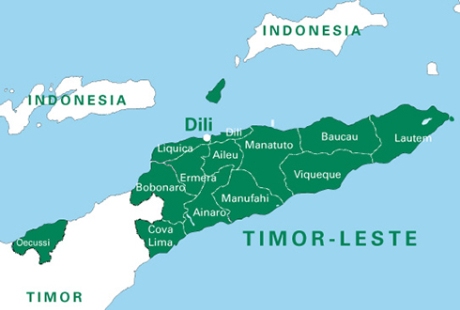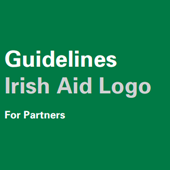Ireland’s Support to Timor Leste, 2001-2014: Learning Papers
27/8/14
Ireland’s Support to Timor Leste, 2001-2014: Learning Papers
In 2014 an independent evaluation of Irish Aid’s engagement in Timor Leste was commissioned.
Desirous that this assessment would serve to identify key lessons in relation to programming in fragile states in general, it was decided that, rather than produce a single report, the findings from the assessment would be presented in the form of four Learning Papers each looking at a different aspect of the support provided by Irish Aid. Key lessons from these papers include:
In terms of the quality of analysis informing planning, it needs to be recognised that in post-conflict states the absence of records will need to be compensated for through a high level of investment in initial assessments. In addition, there is a need to recognise the resilience of customary structures, and that these structures will have an important role to play in the processes of recovery. While UN agencies may have a very important role to play in helping build state institutions, its capacity to fulfil this role needs to be assessed on a case-by-case basis before funding commitments are made. While civil society actors may have critical roles to play in building democracy, they too need to be thoroughly assessed before providing support.
In terms of choosing ways to provide support, the evaluation highlights the fact that modalities that work in non-fragile contexts may not work in settings of fragility. There will be a need to explicitly acknowledge the “unknowns” in fragile settings and to allow for experimentation with modalities, including changing modalities in mid-stream if necessary. Fragile settings will require a concerted effort among partners to assess capacity constraints and to identify short and long term solutions to capacity development.
In terms of results, partners need to be very clear about how things work in a fragile setting. Getting results can be enhanced by adopting a participatory approach to exploring options for action and being ready to adapt as the situation may dictate. Qualities and skills that are needed for working in fragile states need to be carefully identified when selecting staff. In situations of fragility where local capacity issues can be particularly complex, special care is needed to ensure that programme design and implementation are manageable and realistic, and that approaches do not exacerbate existing capacity problems by putting excessive demands on weak structures. The definition of “results”, and the associated monitoring, needs to be clear and realistic.
In terms of addressing conflict, there is a need to recognise that any post-conflict situation has risks of a return to conflict. Conflict risk assessments need to be carried out periodically. Programme design in conflict affected states needs to be clear about how the programme can address the drivers of conflict and to be clear about what intermediate effects can be expected as the programme moves forward. Conflict affected countries are more complex than more stable countries with commensurately greater demands on staff. Country offices thus require more, not fewer, staff. Similarly, demand for support from HQ is likely to be high.

Learning Paper 1: Quality of Analysis
Download Learning Paper 1 of the evaluation report of Ireland’s Support to Timor Leste, 2001-2014Download PDF (660KB)

Learning Paper 2: Modalities
Download Learning Paper 2 of the evaluation report of Ireland’s Support to Timor Leste, 2001-2014 Download PDF (967KB)

Learning Paper 3: Results
Download Learning Paper 3 of evaluation report of Ireland’s Support to Timor Leste, 2001-2014Download PDF (940KB)

Learning Paper 4: Addressing Conflict
Download Learning Paper 4 of evaluation report on Ireland’s Support to Timor Leste, 2001-2014 Download PDF (673KB)


